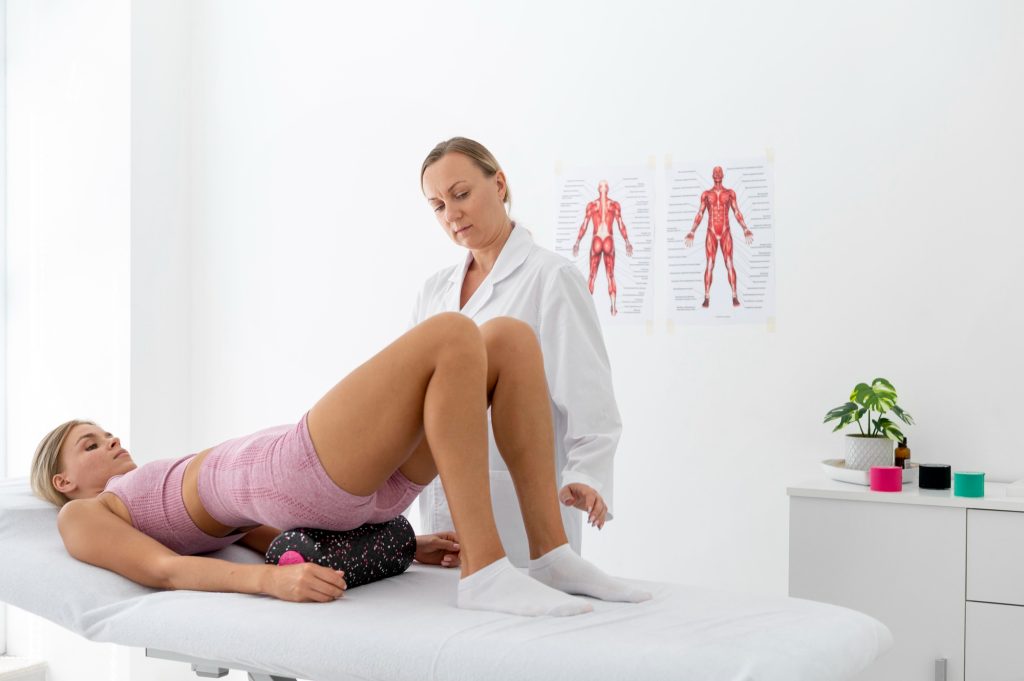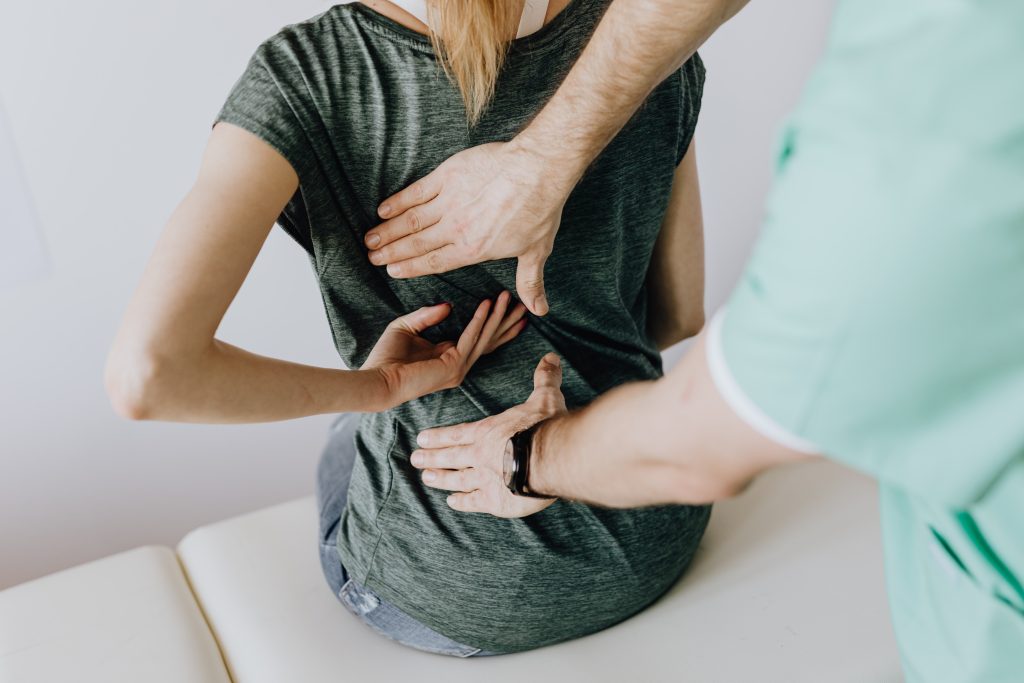Learn about the causes and treatments of postpartum back pain in this informative article.
What Causes Postpartum Back Pain? Understanding the Causes and Treatments
Postpartum back pain. A phrase that strikes fear into the hearts of new mothers everywhere. As if sleepless nights and dirty diapers weren’t enough, now you have to contend with a nagging pain in your back. But fear not, dear mama! In this article, we will delve into the mysterious world of postpartum back pain, uncovering its causes, symptoms, and treatment options. So grab a cup of coffee (or tea, if that’s your thing), find a comfortable spot, and let’s get to the bottom of this backache!

Understanding Postpartum Back Pain
Postpartum back pain is a common issue that many women experience after giving birth. It refers to the discomfort or pain felt in the back, which can range from a mild annoyance to a debilitating ache. This pain typically occurs within the first few weeks after delivery and can persist for several months, making it challenging to carry out everyday tasks.
Definition of Postpartum Back Pain
So, what exactly is postpartum back pain? It is a discomfort or pain experienced in the back by women after giving birth. This pain can range from a mild annoyance to a debilitating ache that makes it difficult to carry out everyday tasks. It usually occurs within the first few weeks after delivery and can persist for several months.
Common Symptoms Associated with Postpartum Back Pain
Now that we know what postpartum back pain is, let’s talk about the symptoms. These can vary from person to person, but some common signs include:
- Dull or sharp pain in the lower back
- Pain that radiates to the hips or buttocks
- Stiffness or limited range of motion
- Tender or sore muscles
- Difficulty standing up straight
If any of these sound familiar, don’t worry – you’re not alone. Many new moms experience back pain after giving birth, and understanding the causes can help you find relief.
One possible cause of postpartum back pain is the physical strain that pregnancy and childbirth put on the body. During pregnancy, the ligaments in the pelvic area loosen to prepare for childbirth, which can lead to instability in the lower back. Additionally, the weight gain and changes in posture during pregnancy can put extra pressure on the spine, leading to discomfort.
Another factor that can contribute to postpartum back pain is the hormonal changes that occur after giving birth. The hormone relaxin, which helps to loosen the ligaments during pregnancy, can remain in the body for several months postpartum. This can result in continued joint instability and increased susceptibility to back pain.
Furthermore, the physical demands of caring for a newborn can also contribute to back pain. Constantly lifting and carrying the baby, bending over to change diapers, and breastfeeding in awkward positions can all put strain on the back muscles and lead to discomfort.
It’s important to note that postpartum back pain is not something to simply endure. There are various treatment options available to help alleviate the pain and promote healing. These can include physical therapy exercises to strengthen the core and back muscles, chiropractic adjustments to realign the spine, and hot or cold therapy to reduce inflammation.
In addition to seeking professional help, there are also self-care measures that new moms can take to manage postpartum back pain. These include practicing good posture, using proper body mechanics when lifting or carrying the baby, taking breaks to rest and stretch, and using supportive pillows or cushions while breastfeeding or sleeping.
Remember, postpartum back pain is a common issue, and there are solutions available to help you find relief. By understanding the causes and symptoms, and seeking appropriate treatment, you can take steps towards a pain-free postpartum journey.
The Causes of Postpartum Back Pain
Hormonal Changes and Their Impact
Hormones. Those sneaky little chemicals that wreak havoc on our bodies. During pregnancy, your body produces a hormone called relaxin, which relaxes the ligaments in your pelvis to prepare for childbirth. While this is necessary for the birthing process, it can also make your joints and ligaments more flexible, leading to instability and back pain.
But what exactly is relaxin and how does it affect your body? Relaxin is a hormone secreted by the ovaries and placenta during pregnancy. Its main role is to soften and lengthen the cervix, allowing for easier delivery. However, relaxin doesn’t just target the cervix – it affects all the ligaments in your body, including those in your back. This hormonal surge can cause your ligaments to become looser than usual, leading to increased mobility in your joints and potentially contributing to postpartum back pain.
Additionally, relaxin can also affect the stability of your pelvis. As the ligaments in your pelvis become more relaxed, it can lead to an imbalance in your pelvic joints, causing discomfort and pain in your lower back. This hormonal change, combined with the physical strain of pregnancy and childbirth, can make postpartum back pain a common complaint among new mothers.
Physical Strains During Pregnancy and Childbirth
Let’s face it – growing a tiny human is no small feat. The physical strain that pregnancy places on your body can take a toll on your back. Carrying the extra weight of a baby in your belly for nine months can put pressure on your spine and muscles, causing discomfort. And let’s not forget about the process of childbirth itself – the pushing and straining can further contribute to postpartum back pain.
During pregnancy, your growing uterus shifts your center of gravity forward, which can lead to an increased curvature in your lower back. This change in posture can strain the muscles in your back, causing pain and discomfort. Additionally, the weight of your baby puts pressure on your pelvic floor muscles, which can also contribute to back pain.
Childbirth, especially if it involved a long labor or the use of forceps or vacuum extraction, can put additional strain on your back. The intense pushing and straining can cause muscle fatigue and even minor injuries, leading to postpartum back pain. It’s important to remember that every woman’s childbirth experience is unique, and the impact it has on your body can vary.
Posture and Lifestyle Factors
We all know the importance of good posture, but it’s easier said than done, especially when you’re busy taking care of a newborn. The constant bending, feeding, and carrying can lead to poor posture, putting extra stress on your back. Add in the lack of sleep and the countless hours spent hunched over changing diapers, and you’ve got a recipe for back pain.
Proper posture is essential for maintaining a healthy spine. When you slouch or hunch over, it puts strain on the muscles and ligaments in your back, leading to discomfort and pain. As a new mother, it’s important to be mindful of your posture and make an effort to maintain good alignment, even when you’re exhausted.
In addition to poor posture, certain lifestyle factors can also contribute to postpartum back pain. Lack of exercise and physical activity can weaken your back muscles, making them more susceptible to strain and injury. On the other hand, overdoing it with strenuous activities can also lead to back pain. Finding the right balance of exercise and rest is crucial for preventing and managing postpartum back pain.
Furthermore, the emotional and mental stress that comes with being a new mother can also take a toll on your body. Stress can cause muscle tension and tightness, exacerbating any existing back pain. It’s important to prioritize self-care and find healthy ways to manage stress, such as practicing relaxation techniques or seeking support from loved ones.
Medical Conditions That Can Lead to Postpartum Back Pain
Spinal Problems and Postpartum Back Pain
While hormonal changes and physical strains are the most common culprits of postpartum back pain, there are other medical conditions that can contribute to your discomfort. Conditions such as herniated discs or spinal stenosis can cause pain in the back and may be exacerbated by pregnancy and childbirth.

Pelvic Floor Disorders and Back Pain
Another condition to watch out for is pelvic floor disorders. The pelvic floor muscles play a crucial role in supporting your organs, and childbirth can sometimes weaken or damage these muscles, leading to back pain. If you’re experiencing persistent back pain after giving birth, it’s worth consulting a healthcare professional to rule out any underlying pelvic floor issues.
Non-Medical Factors Contributing to Postpartum Back Pain
The Role of Stress in Postpartum Back Pain
Being a new mom is stressful – there’s no denying that. The combination of sleep deprivation, hormonal fluctuations, and the never-ending demands of caring for a newborn can take a toll on your mental and physical well-being. Stress and anxiety can manifest in physical symptoms, including back pain. Finding ways to manage stress, such as practicing mindfulness or engaging in self-care activities, can help alleviate your discomfort.
Impact of Sleep Deprivation
Sleep. The elusive treasure that seems to vanish once you become a parent. The lack of quality sleep can not only leave you feeling exhausted but can also contribute to back pain. When you’re sleep-deprived, your body doesn’t have the chance to properly recover, leading to increased muscle tension and discomfort. As challenging as it may be, try to prioritize sleep and ask for help when needed.
Treatment Options for Postpartum Back Pain
Physical Therapy and Exercise
Exercise? With a newborn? Hear us out. While it may seem counterintuitive, staying active can actually help alleviate back pain. Engaging in gentle exercises, such as walking or attending postnatal yoga classes, can strengthen your core muscles and improve your posture. Additionally, physical therapy sessions tailored to your specific needs can also provide relief.
Medication and Pain Management
If your back pain is more severe or persistent, medication may be necessary. Nonsteroidal anti-inflammatory drugs (NSAIDs) can help reduce inflammation and relieve pain. However, it’s important to consult with your healthcare provider before taking any medication, especially if you’re breastfeeding.
Alternative Therapies for Postpartum Back Pain
If you prefer a more holistic approach, there are alternative therapies that may provide relief. Options such as acupuncture, chiropractic care, or massage therapy can help alleviate muscle tension and promote overall well-being. Just be sure to choose a qualified practitioner who has experience working with postpartum women.
So, dear mama, the journey of postpartum back pain may be long and arduous, but it doesn’t have to be unbearable. By understanding the causes and exploring the treatment options available, you can take steps towards finding relief and reclaiming your backache-free life. Remember, you’re not alone in this – countless moms have walked this path before you and emerged stronger on the other side. Take care of yourself, listen to your body, and don’t hesitate to seek help when needed. You’ve got this!



